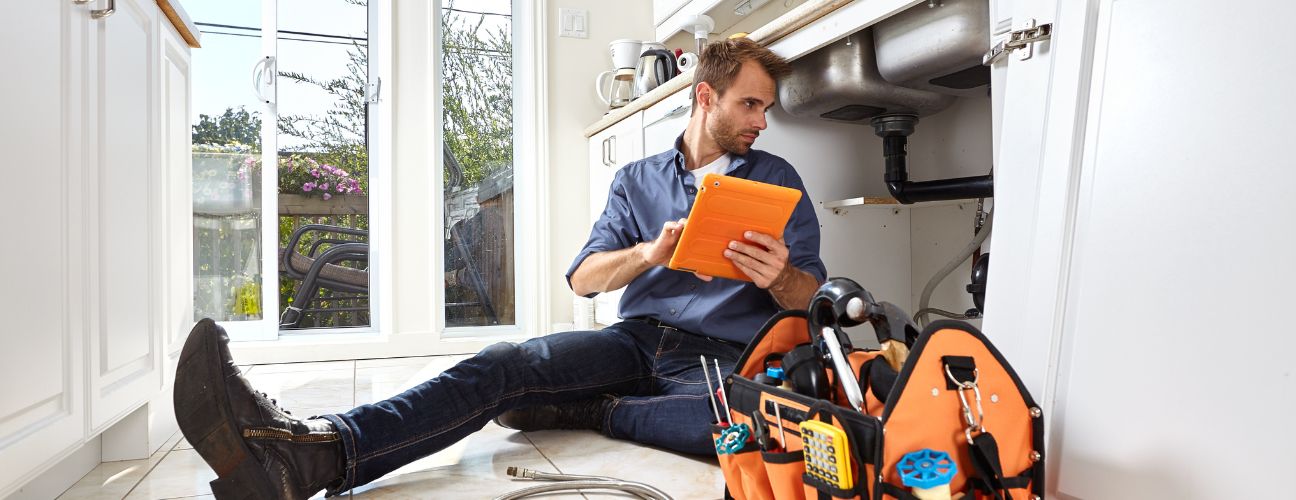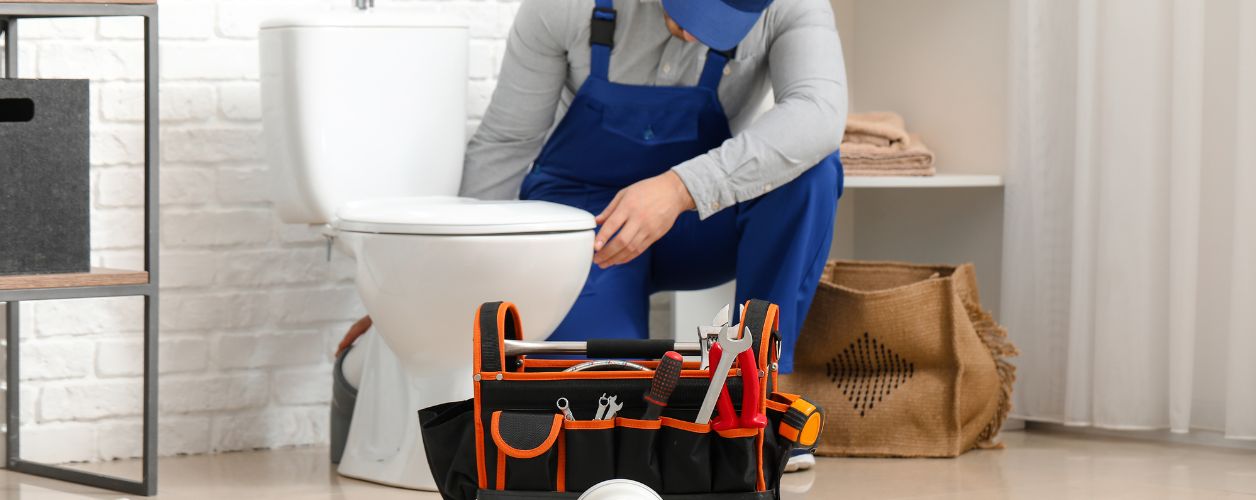Get free quotes within minutes

Most homeowners face plumbing problems in their lives. Some of them require immediate attention. Even though a slow drain or dripping faucet might seem like a small irritation, if we ignore them, the issues can turn into expensive catastrophes. To ensure comfort, emergency plumbing emergencies require prompt action. This can prevent major damage and health hazards to your house.
It is crucial to understand plumbing problems when it becomes an emergency. Within hours, a minor leak may become a pipe burst. And a clogged drain could indicate a more serious obstruction that could cause a sewage backlog. These kinds of circumstances can result in water damage, mould growth, and unhygienic conditions. These seriously jeopardize the health of your family and your property.
Let’s check the main indicators to call emergency plumbers, such as burst pipes, sewage backups, water heater problems, etc. This helps in hiring a plumber when there is an emergency. If you detect and resolve the problem early, then this will save you time and money.
Burst pipes can cause major problems like waterlogging, soaking floors, walls, etc. Burst pipes or major water leaks are among the most urgent plumbing emergencies a homeowner can encounter. If left unattended, they can result in rapid flooding, extensive water damage, and even structural issues.
Several things can cause pipes to burst. In colder climates, frozen pipes are a leading cause when water inside a pipe freezes and expands. It can cause the pipe to explode. Plumbing that is old or corroded is also susceptible to unexpected breaks, particularly if the material has weakened over time. Furthermore, high water pressure in the system develops stress on pipes and joints, which eventually results in their failure.
Puddles are just one of the many effects of a burst pipe. If there is a Flood, then it can harm electrical equipment, drywall, and flooring. Furthermore, standing water fosters the growth of mould and mildew. In multi-story homes, leaks can seep into lower floors, aggravating the damage and boosting repair expenses substantially.
If you suspect a burst pipe, then you should turn off the main water valve to stop the flow. Also, in order to prevent electrocution, you should turn off the electricity in the affected areas. If it is safe to do so, try to remove valuables or furniture from the impacted area. Last but not least, do not hesitate to call an emergency plumber because delays might make a bad problem worse.
Your prompt action can help minimize damage. Expert assistance is necessary to identify the break, fix the pipe, and guarantee that the issue will not recur.
It can be concerning to turn on the faucet and discover that there is no running water. Because this could indicate a major plumbing problem. A single broken faucet or low pressure could be signs of a small problem. But a complete water loss in your house has to be looked into right away.
First, see if the problem is limited to a single faucet or fixture. A malfunctioning valve or a clogged aerator may be the cause if only one area is impacted. However, you are probably dealing with a system-wide issue if there are several taps in the house without water. Similarly, if the hot and cold lines are both dry.
A complete water outage can occur for several reasons, including frozen pipes. These frozen pipes obstruct water flow in the winter and eventually burst. This causes a more serious emergency: a break in a main water line, either on your property or in the municipal system. Eventually, this stops water from reaching your home. It also affects the municipal maintenance and your water meter.
If all of the taps abruptly stop working, you should consider it an emergency, especially if water was being used. Without water, there would be no cooking, sanitation, or fire suppression—all essential for day-to-day survival. You should call an emergency plumber if you want to identify and fix the problem before it causes more issues.
There are not many plumbing problems as unpleasant or pressing as a clogged drain or overflowing toilet. These problems are not simply bothersome; they are often symptoms of obstruction inside your plumbing system or a sewer line issue that demands quick professional action.
A plunger sometimes clears out small clogs. But if water backs up often in several sinks, this can be a blockage in the main line. If flushing the toilet results in water backing up in the sink or shower, your sewage line may be blocked.
Raw sewage, which contains harmful bacteria and pathogens, can enter your home through overflowing toilets and drains. There can be long-term mold and mildew problems if there is improper and delayed wastewater cleanup.
You can use chemical drain cleaners or improvised tools that may provide temporary comfort. But they often fail to cure the underlying issue, and may even damage your pipes. A certified plumber has the tools and know-how to find and remove deep obstructions. They use the camera to check the sewer line and make sure your system is operating correctly. Call an emergency plumber right away if wastewater begins to back up.
Although a broken water heater may appear to be a minor annoyance, it signals the beginning of a plumbing problem. If your unit suddenly stops producing hot water, starts leaking, or makes weird sounds, it's time to take action.
Lack of hot water when you wake up may indicate problems. These problems involve a malfunctioning thermostat, a broken heating element, or sediment accumulation in the tank. Unusual popping or rumbling noises are frequently signs of sediment hardening at the bottom. These sediments cause hot spots that put stress on the tank. Sulfur-like odours may also be a sign of tainted water or bacterial growth in the tank.
Dripping or pooling water from your water heater is a major red flag. Excessive pressure within the tank, loose valves, or corrosion can all cause leaks. It is impossible to overlook the possibility of dangerously high pressure if the temperature and pressure relief valve is leaking.
You run the risk of flooding if you ignore a leaking, broken water heater or if the tank breaks entirely. Unchecked pressure building can cause a tank explosion that might destroy your property and put people in danger. Contact a water heater expert or emergency plumber right away if you see any of these symptoms. A simple fix or an expensive catastrophe can be determined by early intervention.
Although low water pressure may seem like a small inconvenience, it may indicate a more significant plumbing problem. Inconsistent flow from several fixtures can be a result of a concealed leak, a blocked pipe, or even a burst pipe.
Low water pressure develops if there is mineral accumulation, corroded pipes, or plumbing system leaks. A significant line problem could also be indicated by an abrupt change. Particularly if it is accompanied by odd sounds or wet areas on the walls, ceilings, or floors.
Emergency plumbers swiftly and precisely identify the problem's origin by using sophisticated diagnostic equipment like pipe cameras and pressure gauges. This avoids needless damage during inspections and saves time.
If there is a delay in action on low water pressure, it may allow small leaks to grow. Eventually, it results in pipe breaks, water damage, and costly repairs. To avoid more issues, it’s important to contact a professional right away if your water pressure lowers unexpectedly or rapidly.
There might be a septic system backup or a damaged sewer line if you feel unusual wet, soggy patches. Unpleasant sewage odors inside your house indicate the same. Both are considered plumbing emergencies. These problems are harmful in addition to being uncomfortable.
Gurgling toilets, slow drains, sulfur-like smells, and excessively green spots in yards might all be signs of a sewage issue. Even if it has not rained, you may still observe standing water in your yard.
Hazardous bacteria, viruses, and parasites found in raw sewage can seriously endanger the health of your family members and pets. Additionally, leaking trash can draw pests like flies and rats, erode soil, and harm the foundation of your house.
These issues will not go away on their own. There is a larger chance of extensive contamination and expensive harm the longer you wait. The break can be found, the leak can be stopped, and your system may be safely restored by emergency plumbers. To safeguard your house & well-being, contact an emergency plumber if you think there may be a septic or sewer problem.
Plumbing problems can escalate from minor to disastrous if you do not address them on time. There are many warning signs you read above that tell you that there is an immediate requirement for a professional plumber. If you ignore these indications, then later it will cost you much more. Also, it can cause harm to your health and property.
Plumbing emergencies do not go away on their own, and do-it-yourself solutions can make the problem worse. Time is of the essence when your home's plumbing is jeopardized. A certified emergency plumber has the equipment and know-how to locate the issue fast, prevent further damage, and safely repair your system.
You should immediately call a qualified emergency plumber if you see emergency symptoms. Do not wait for water damage or health hazards. Timely action can make the difference between a temporary solution and a major catastrophe.
